第99章 50(1)
HOW THE NEWLY FOUNDED NATIONAL OR
DYNASTIC STATES OF EUROPE TRIED TO MAKE THEMSELVES RICH AND WHAT WAS MEANT BY THE MERCANTILE SYSTEM WE have seen how, during the sixteenth and the seventeenth centuries, the states of our modern world began to take shape.
Their origins were different in almost every case. Some had been the result of the deliberate effort of a single king. Others had happened by chance. Still others had been the result of favourable natural geographic boundaries. But once they had been founded, they had all of them tried to strengthen their internal administration and to exert the greatest possible influence upon foreign affairs. All this of course had cost a great deal of money. The mediaeval state with its lack of centralised power did not depend upon a rich treasury. The king got his revenues from the crown domains and his civil service paid for itself. The modern centralised state was a more complicated affair. The old knights disappeared and hired government officials or bureaucrats took their place. Army, navy, and internal administration demanded millions. The question then became where was this money to be found?
Gold and silver had been a rare commodity in the middle ages. The average man, as I have told you, never saw a gold piece as long as he lived. Only the inhabitants of the large cities were familiar with silver coin. The discovery of America and the exploitation of the Peruvian mines changed all this.
The centre of trade was transferred from the Mediterranean to the Atlantic seaboard. The old "commercial cities" of Italy lost their financial importance. New "commercial nations" took their place and gold and silver were no longer a curiosity.
Through Spain and Portugal and Holland and England, precious metals began to find their way to Europe The sixteenth century had its own writers on the subject of political economy and they evolved a theory of national wealth which seemed to them entirely sound and of the greatest possible benefit to their respective countries. They reasoned that both gold and silver were actual wealth. Therefore they believed that the country with the largest supply of actual cash in the vaults of its treasury and its banks was at the same time the richest country. And since money meant armies, it followed that the richest country was also the most powerful and could rule the rest of the world.
We call this system the "mercantile system," and it was accepted with the same unquestioning faith with which the early Christians believed in Miracles and many of the present- day American business men believe in the Tariff. In practice, the Mercantile system worked out as follows: To get the largest surplus of precious metals a country must have a favourable balance of export trade. If you can export more to your neighbour than he exports to your own country, he will owe you money and will be obliged to send you some of his gold. Hence you gain and he loses. As a result of this creed, the economic program of almost every seventeenth century state was as follows:
1. Try to get possession of as many precious metals as you can.